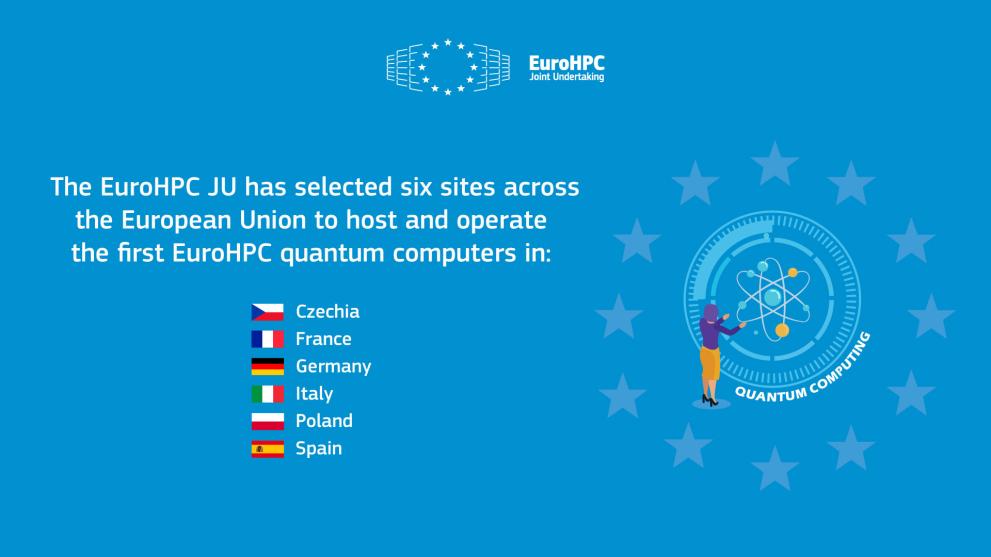EuroHPC Joint Undertaking announced yesterday the selection of the six sites that will host the first European quantum computers.
Of all the states that participated in the Expression of Interest (EOI) announced in March 2022 by EuroHPC JU, six of them passed the selections to become hosting entities: Czechia , France, Germany, Italy, Poland and Spain.
This selection is part of the EuroQCI (European Quantum Communication Infrastructure) initiative, which aims to build a secure quantum communication infrastructure across Europe, and of the Quantum Technology Flagship, a long-term research and innovation initiative with the aim to put the European Union at the forefront of the second quantum revolution.
The six new quantum systems will be integrated with as many ssupercomputers already present on European soil, strengthening the European computing infrastructure, and will be available mainly for research and development purposes for a wide audience of European users, including scientific communities, industries and the public administration sector.
They will also be instrumental in addressing the growing demand for quantum computing resources, and will be able to solve complex problems related to important areas such as health, climate change, logistics or energy consumption.il consumo di energia.
In Italy, Cineca will manage the new quantum computer on behalf of EuroHPC JU. The new machine will be integrated with Leonardo which, thanks to its particular and futuristic architecture, lends itself extraordinarily well to the purpose.
This architecture, called MSA (Modular Supercomputing Architecture), has been designed to allows to easily integrate heterogeneous computational systems, or, in other words, with architectures that are profoundly different from that of the supercomputer.Quantum computers are also among these computational systems.
The quantum computer will be physically connected to Leonardo through a wired network. This type of integration, called co-localized, allows a higher speed of information exchange between the two systems compared to the localization of the QPU in the cloud, consequently allowing the development of increasingly efficient hybrid algorithms.
The new quantum computers are expected to be available at the six sites above by the second half of 2023.
More information can be found in the EuroHPC JU press release.


